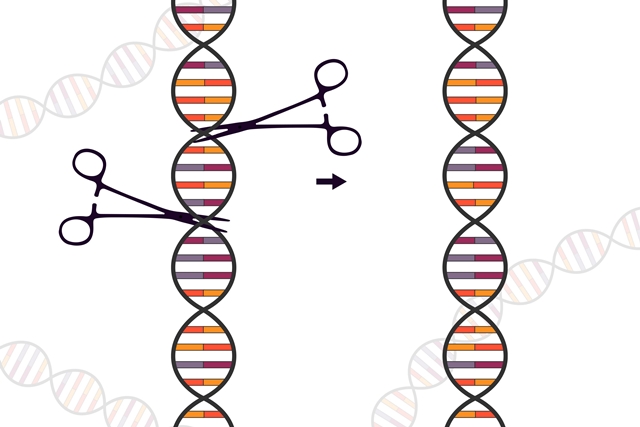2 Aug. 2022. A biotechnology company received a patent for its engineered viruses to deliver gene-edited treatments to combat bacterial infections in the microbiome. Snipr Biome ApS in Copenhagen, Denmark says the U.S. Patent and Trademark Office today granted patent number 11,400,110 covering parts of the company’s antimicrobial technology in medical applications.
Snipr Biome is a developer of treatments working in the microbiome, communities of naturally-occurring bacteria and other microbes in gut, skin, and elsewhere on the body. The company’s therapies use the gene-editing technique Crispr, short for clustered regularly interspaced short palindromic repeats, to deliver edited DNA that destroy harmful bacteria in the gut, while sparing beneficial microbes, or to deliver gene therapies. Crispr itself is based on bacterial defense mechanisms that use RNA to identify and monitor precise locations in DNA.
One way Snipr Biome delivers its therapies is with bacteriophages, a type of virus that infects bacteria. Bacteriophages, or phages, destroy bacterial targets with lysis, a process that breaks down the outer cell membranes, killing the microbe. The company’s lead product, code-named Snipr001, uses lysis from engineered phages to remove E. coli bacteria before reaching the blood stream of patients with blood-related cancers, that can also affect bone marrow and lymph nodes. Snipr001, says Snipr Biome, works by attacking E. coli bacteria in the gut with characteristic genetic sequences before they reach the blood stream, while sparing other gut microbes. In April, Science & Enterprise reported on the start of a clinical trial of Snipr001.
A range of bacterial disease targets
The new patent covers Snipr Biome’s processes for RNA to guide Crispr-associated or Cas editing enzymes used by Crispr for engineering phages for attacking prokaryotes, single-cell targets like bacteria with lysis, such as in Snipr001. The patent is written to include Cas9, the most widely used Cas enzyme, as well as other Cas enzymes. The document also covers a range of bacterial disease targets other than E. coli, including C. difficile, Klebsiella, Pseudomonas aeruginosa, Helicobacter pylori, Salmonella, and Staphylococcus aureus.
The patent is granted to Snipr Biome’s co-founder and chief intellectual property officer Jasper Clube, and assigned to the company. Christian Grøndahl, CEO and also a co-founder, says in a company statement released through Globe Newswire that the patent “recognizes the continued pioneering work by Snipr scientists as innovators of Crispr/Cas editing of prokaryotes.”
Snipr Biome says its 22 patents from USPTO and those from European authorities protect its use of Crispr to combat infectious disease microbes in humans and animal microbiomes. The company says the documents cover delivery with phage and other vehicles, as well as a range of diseases. Snipr Biome says its patents apply as well to enhance cancer immunotherapies, including therapeutic vaccines and CAR T-cells engineered with chimeric antigen receptors.
More from Science & Enterprise:
- Small Biz Grant Funds Non-Viral Gene Editing Delivery
- Trial Okayed for Engineered Cell Cancer Therapy
- NIH Funding Engineered Phage Screening Device
- Trial Begins of Precise Gene Editing for Heart Disease
- Precision Microbial Resistance Joint Venture Formed
We designed Science & Enterprise for busy readers including investors, researchers, entrepreneurs, and students. Except for a narrow cookies and privacy strip for first-time visitors, we have no pop-ups blocking the entire page, nor distracting animated GIF graphics. If you want to subscribe for daily email alerts, you can do that here, or find the link in the upper left-hand corner of the desktop page. The site is free, with no paywall. But, of course, donations are gratefully accepted.
* * *


 RSS - Posts
RSS - Posts
You must be logged in to post a comment.